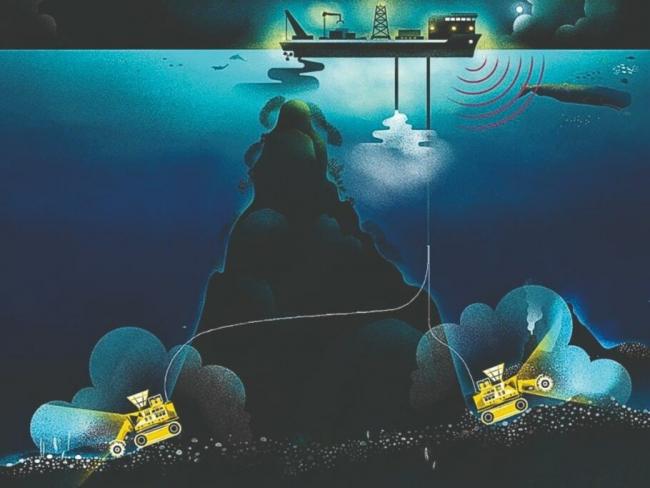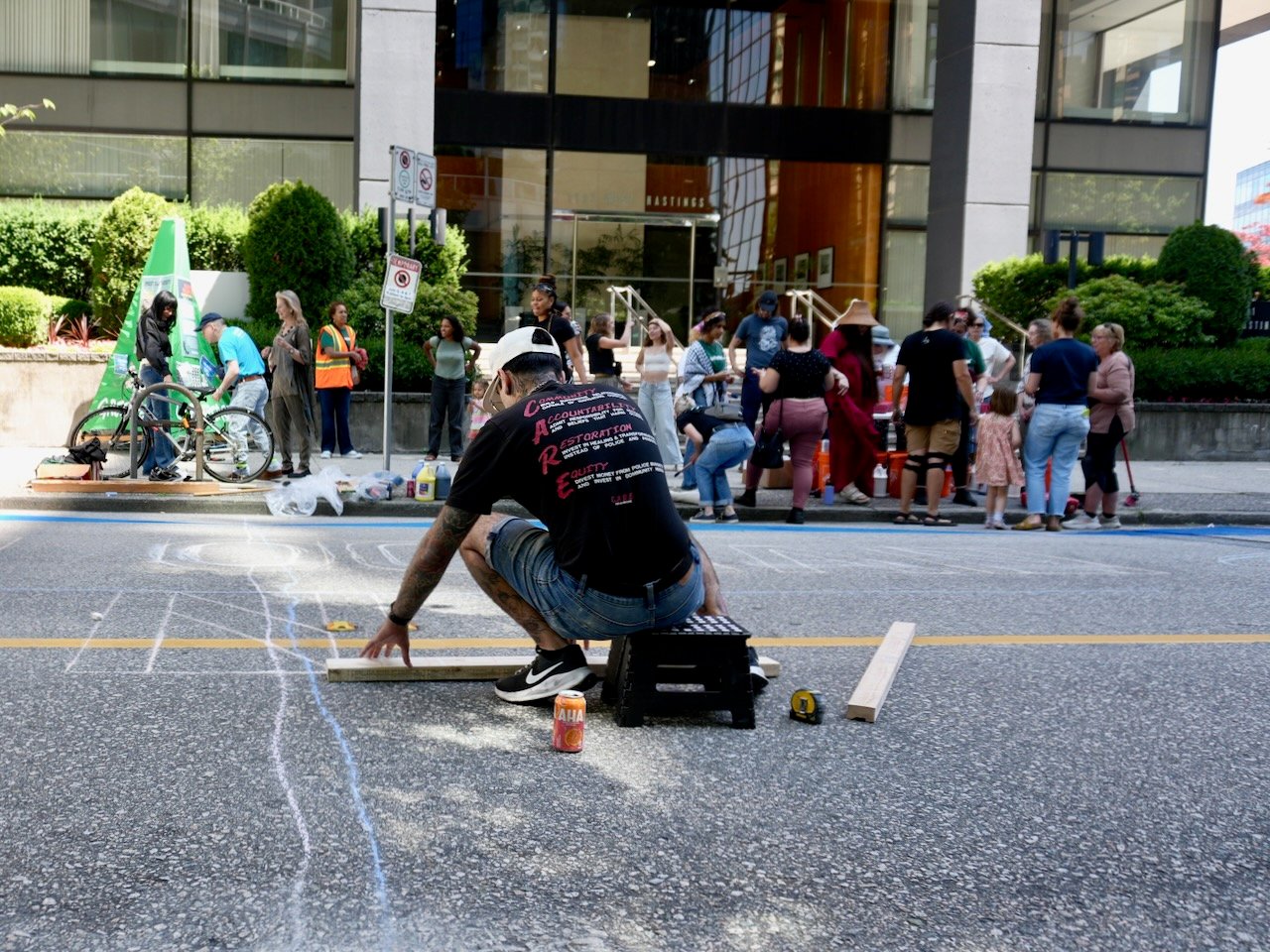Articles Menu

July 7, 2025
A U.S. executive order to promote deep-sea mining and a Canadian company’s application to take advantage of the Trump government’s interest in the practice prompted a protest in downtown Vancouver on Friday.
During the demonstration in front of the Metals Company’s headquarters, community members of all ages painted a street mural stating “The Ocean is Not for Sale” that was bordered with Coast Salish blanket patterns co-designed by Ku’us/Xwelmexw visual artist Kwiis Hamilton.
“We’re here to paint a giant message to remind [the Metals Company] that the ocean is the sacred commons of humanity,” said Salomé Sané, a nature and biodiversity campaigner with Greenpeace Canada, the environmental group that organized the protest.
“It’s not the Metals Company’s property, nor [U.S. President Donald] Trump’s resource to take for profit.”
Greenpeace acted after the company applied for deep-sea mining to the United States government in April. The move came in response to a U.S. executive order issued to accelerate the safe development of seabed mining. The order aims to assess available resources and “reinvigorate American leadership” in extraction and processing technologies, while ensuring “secure supply chains for defence, infrastructure, and energy sectors.”
The U.S. subsidiary of the Canadian company filed for a commercial recovery permit that spans over 25,160 square kilometres in the Clarion-Clipperton Zone, an area of the Pacific Ocean between Hawaii and Mexico that spans 45 square kilometres and is littered with deposits of nickel, manganese, copper, zinc cobalt and other minerals. The company also filed for two exploration licenses with a total combined area of 199,895 square kilometres.
“It is a U.S. executive order, but it would happen in international waters,” said Sané. “It is a Canadian company that is rushing to be the first, [and] they’re priding themselves on being the first, to mine the deep sea — despite the impacts this will have.”
NPR reported that the Metals Company has said its systems in place will limit environmental impacts, and will only affect the immediate area surrounding the mining operation. The company has also pointed to studies that find that life in the zones they plan to mine are less populated by wildlife than mining sites on land.
However, experts are cautioning against the project, saying that it could potentially cause irreversible damage to the seafloor.
A recent study found that the ecosystems that are disrupted due to deep-sea mining may not return to their full potential for over 40 years after the extraction.
Studies have also found that noise pollution and sediments can vastly impact creatures up the food chain.
“It’s not right to commodify the very lifeblood of our people here. The ocean is where our salmon go to live their lives before they come back to the rivers to lay their eggs,” said Hamilton. “It’s very important to keep that ocean intact because if you destroy our land, you destroy our people.”

The Canadian federal government has previously supported the slow-down on deep-sea mining activities. In 2023, the government released a statement on deep-sea mining saying that “Canada does not presently have a domestic legal framework that would permit seabed mining and, in the absence of a rigorous regulatory structure, will not authorize seabed mining in areas under its jurisdiction.”
In 2023 the government also supported an international moratorium on commercial seabed mining in areas beyond national jurisdiction.
Part of the goal of the demonstration is to remind the Liberal government of these commitments, said Greenpeace organizers.
“We want to make sure that [Prime Minister Mark] Carney, who campaigned on an anti-Trump platform… stands up to the Metals Company, it’s a Canadian company. Stand up to Trump,” said Sané.
With the next meeting for the International Seabed Authority a few weeks away, Sané hopes that Canada takes a stand to protect the ocean, “meaning the moratorium again on deep-sea mining and opposing as well a mining code that they’re trying to write in order to regulate an industry that we don’t think should see the light of day.”
Kristen de Jager is a graduate student at the University of British Columbia’s school of journalism, writing and media.
[Top: An environmental group is asking Ottawa to continue to support an international moratorium on commercial seabed mining in areas beyond national jurisdiction. Illustration via WWF.]